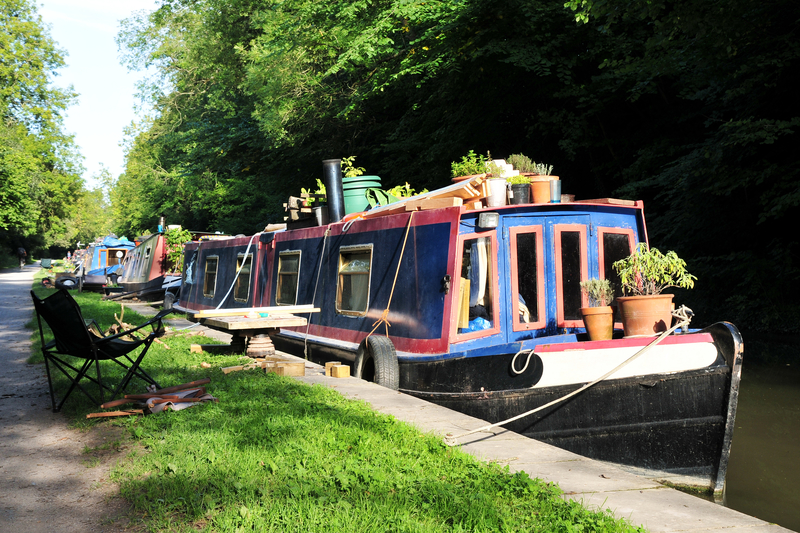Boat living is not for everyone and it does require a lot of planning, but if you do it right, you can find a slip in just about any marina that allows for overnight stays.
Here is how they are doing it in London.
Logistics: how do Londoners live in boats?
Under a ‘continuous cruisers’ (CC) permit, which depends on the size of the boat but averages about £700 per year according to Rachel, it is possible to moor on any of the anywhere there is an available mooring that isn’t a trade mooring location or privately owned. Some private areas charge extra per night, and in busy areas including right in front of Broadway Market the mooring time is reduced to one week, with a £25 per night fee if moored past the maximum.
Rachel, who is currently moored just outside Broadway Market along Regents Canal, said the area was really popular.
“I really like it, and so do a lot of other people, and that’s why it’s quite busy here,” she said. “Especially over Christmas and New Year it’s been a good location, very close to the centre of the city, close to restaurants and pubs.”
Like many CC’ers, Rachel runs her boat on solar panels and batteries, and burns eco-coal in a wood stove to keep warm.
“You can get eco-coal delivered, and that smoulders all night and keeps the boat toasty, so I’ve never been too cold,” she said.
“Wearing a onesie in bed with the hood up and the fire on – it’s lovely. I’ve never been freezing, and sometimes it’s the other way actually – where it’s boiling and I have to open all the windows and the door.”
12 volt leisure batteries run the lights and change her phone each night, with solar panels on the roof charging the batteries during the day. Her boiler runs on gas, which heats the water for showering and cooking.
Rachel fills up the water tank every two weeks or so, depending how careful she is with water use.
“You’re careful with water, obviously, because you don’t want to be going to get water all the time, even though it is fine going to get it,” she said. “It does make you think about how much water you use; it naturally makes you think of your imprint on the world. You recycle like mad – I usually burn it, so I don’t have to recycle things like paper – and now I want to get a worm bin for composting and to put my food scraps to good use.”
She keeps a cool bag out the back for a fridge – although she does have one, she says she almost never runs it.
“When I stayed in my friend’s boat that first week and she said ‘I don’t have the fridge on,’ I was absolutely horrified,” she said. “I thought, ‘oh my god, how do you cope without a fridge?’ but then you think, hang on a minute – fruit and veg, butter, eggs – they don’t need to go in a fridge. If you do a whole week’s shop and you’ve got readymade meals and things like that, they obviously do, but really, I think most items don’t need it, especially in winter.”
The exception is when friends come over; she stocks up the fridge and runs it during the day when the solar panels are on, and then switch it off in the evening.
“I never used a hairdrier before moving to my boat, and I don’t own a TV. What else do you need, really?” she said.
A boat as a way to get off grid is obviously not an option for everyone – purchasing a livable boat is a major investment, but if you live in an urban area with a major waterway, there is almost guaranteed to be a marina that allows for longer-term stays.
You have to plan it out – learn the regulations and restrictions, but for some, living on a boat gets them off grid and is cheaper than urban living alternatives.
To learn more about living off grid on a boat, please visit Off Grid.
